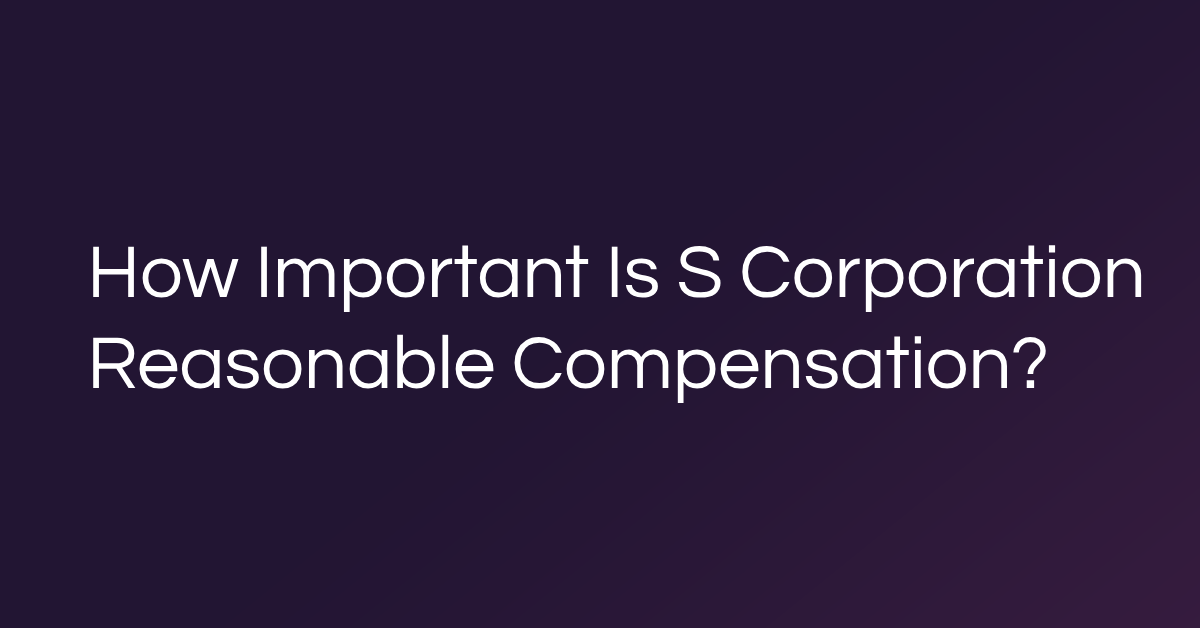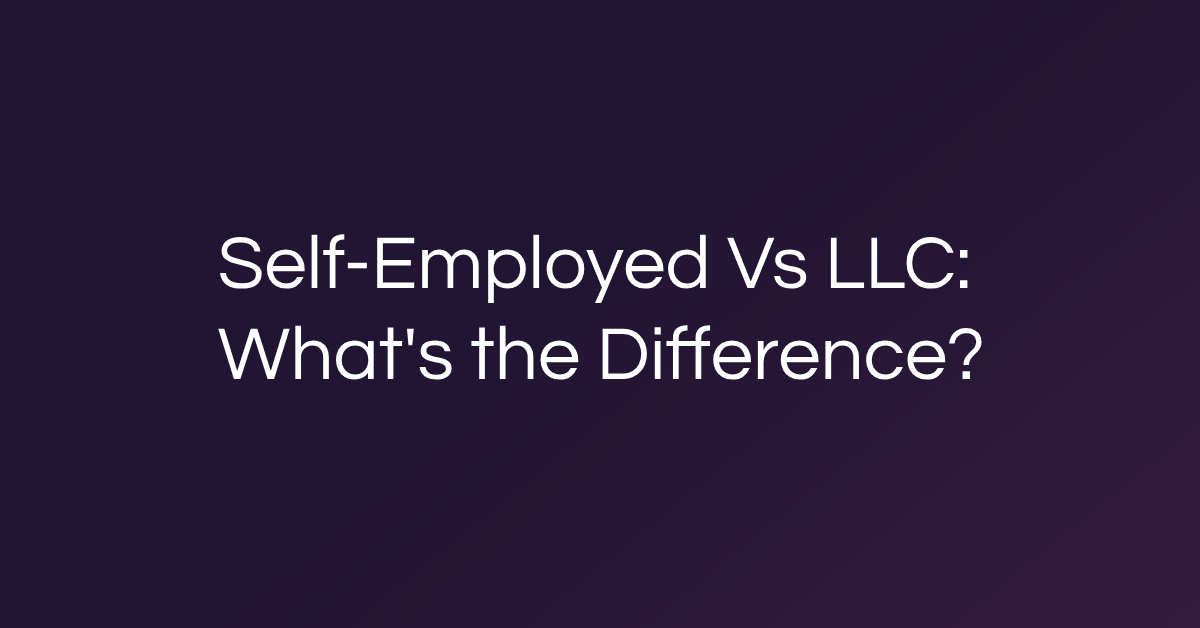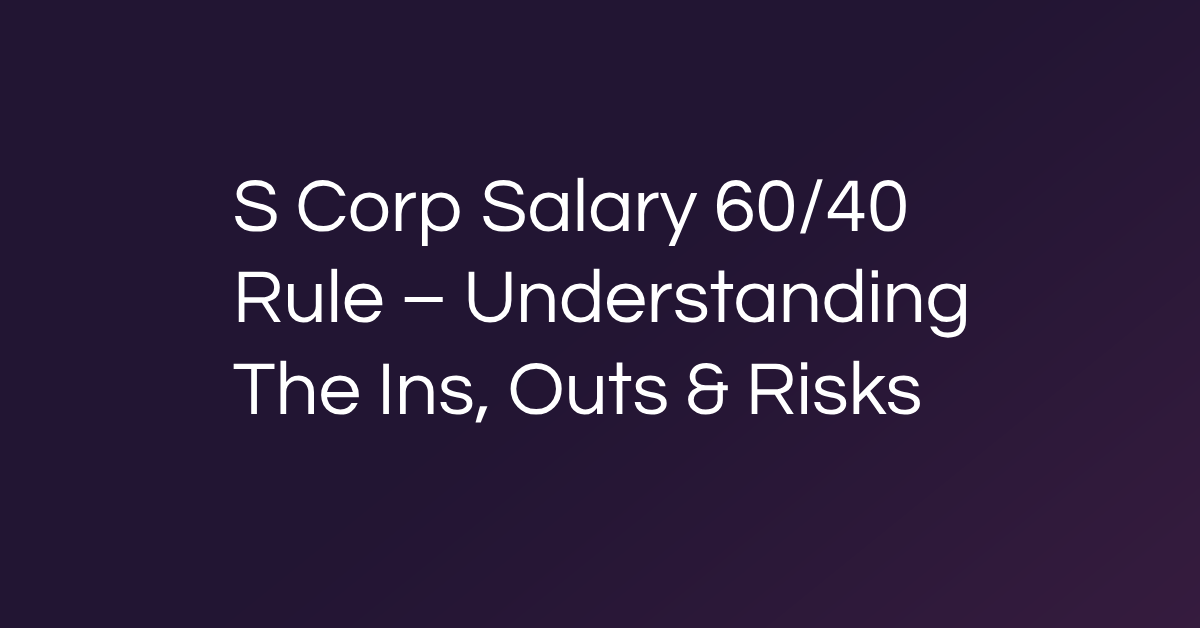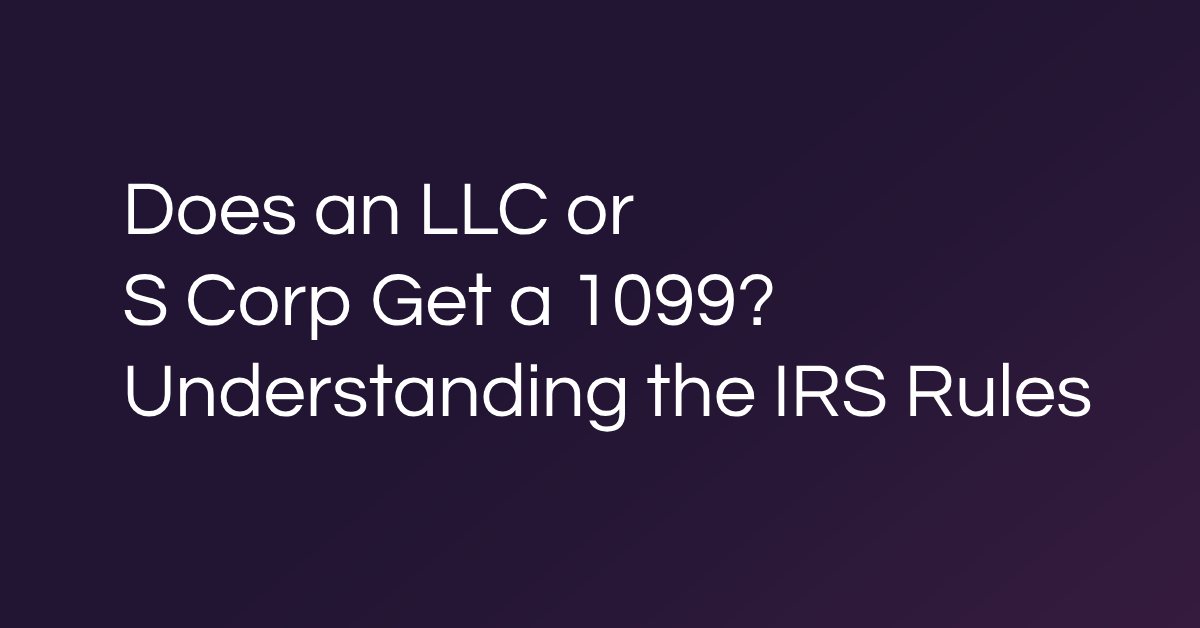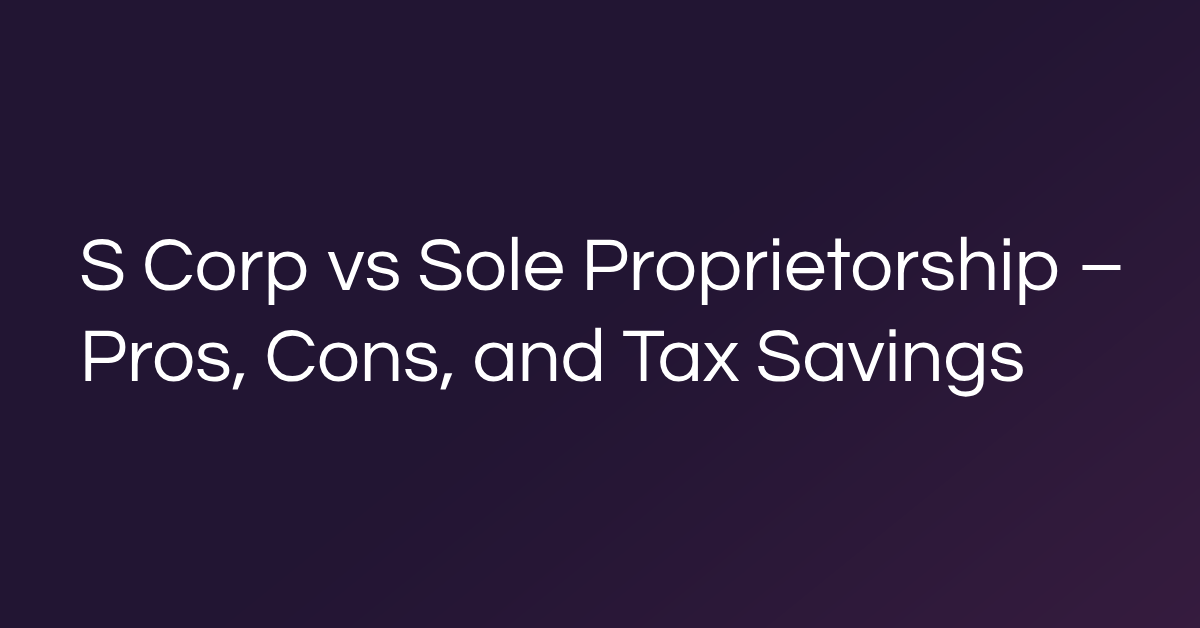If you’ve selected S corp status for your business, you’ve likely heard the term “S corporation reasonable compensation.” It’s about more than just a paycheck — it’s a compliance requirement that plays a significant role in how the IRS views your salary, payroll taxes, and business legitimacy.
For small business owners operating S corps, setting the right salary can protect you from audits, penalties, and recharacterization of distributions. Yet, many solopreneurs misunderstand how the IRS defines reasonable pay or assume it’s a one-time decision.
Understanding what constitutes reasonable compensation and how to document it can reduce risk while allowing for flexibility as your business evolves. Explore how to stay compliant, avoid red flags, and take advantage of the tools and support available to get it right.
The stakes of determining reasonable compensation
S corporation owners are required to pay themselves a reasonable salary before taking any profit distributions. This isn’t just a best practice, its an obligation. Reasonable compensation helps determine how much of your income is subject to employment taxes, and underpaying yourself can raise serious red flags with the IRS.
In recent years, IRS audits targeting S corps have increased, and failure to pay yourself adequately can result in reclassification of distributions, back taxes, penalties, and interest.
The IRS defines reasonable compensation as the amount that would ordinarily be paid for similar services by similar businesses under similar circumstances. A salary that’s too low can trigger scrutiny. If it’s too high, you may be giving up cash flow you could otherwise reinvest in your business.
Guiding principles in salary selection
Setting your S corp salary is about striking a balance between compliance and your business’s financial health. Consider your role’s demands, industry norms, and your company’s bottom line, and look at your day-to-day responsibilities and the hours you’re putting in.
Flexibility and adjustments in salary selection
Your salary isn’t set in stone. As your business evolves, so should your compensation. Many owners start with a conservative salary based on early projections and cash flow.
Regular salary reviews will help you stay compliant and tax-efficient while adapting to your business’s changing landscape. Don’t shy away from adjustments. They’re a normal part of running a successful business.
Common myths about reasonable compensation
Misunderstandings about S corp salaries often lead to compliance issues and increased audit risk. By separating fact from fiction, owners can make better decisions — and avoid unnecessary problems.
- “You can pay yourself whatever you want.”
Your salary must be comparable to that of someone in a similar role. The IRS pays close attention to compensation that appears too low or out of sync with industry norms. - “You don’t need to run payroll if it’s just you.”
Even if you’re the only employee, S corp rules require you to process payroll and withhold appropriate taxes. Skipping this step can result in back taxes, penalties, and interest. - “Dividends are better than salary—just pay yourself in distributions.”
While distributions can be tax-efficient, they’re only legal after paying yourself a reasonable wage. Failing to do so risks IRS reclassification of distributions as wages, triggering penalties. - “The IRS doesn’t really audit small businesses.”
In reality, S corp compensation is a frequent audit trigger. Compensation and payroll issues are a central focus of IRS examinations.
How the IRS evaluates reasonable compensation
The IRS doesn’t leave reasonable compensation to guesswork. When reviewing an S corp owner’s salary, agents consider various factors to determine if it reflects fair market value. These include:
- The nature of the work performed
- The time and effort involved
- Training and experience
- How similar businesses pay for comparable roles
If your compensation doesn’t align with these standards, the IRS may recharacterize distributions as wages, triggering back taxes, penalties, and interest. This is especially likely if you’re paying yourself little to no salary while taking large distributions.
Best practices for s corp owners
Getting your salary right isn’t just about math—it’s about documentation, awareness, and ongoing strategy.
Document everything
Thorough records are your first line of defense. Keep notes on how you arrived at your salary, including comparable market data, your role in the business, hours worked, and business performance. If the IRS audits your return, you’ll want clear justification. Proper documentation can make or break a case involving S corporation reasonable compensation.
Stress test your salary
Check your compensation against industry benchmarks and salary databases. Are you paying yourself like someone in a similar role with similar responsibilities and experience? If your pay is significantly below market, that’s a red flag. As your business grows, an annual reassessment will help avoid surprises.
Use professional tools
Manual payroll and salary estimation tools often fall short when it comes to audit protection. Besolo’s Solo S Corp service includes built-in tools to help you assess, document, and adjust your compensation with confidence—all backed by vetted guidance.
Stay proactive
The IRS frequently updates its guidance and enforcement priorities. Stay informed about shifts in regulation, tax court decisions, or industry-specific expectations. Being reactive only after an audit letter arrives is too late.
Consult experts
Even with great tools and documentation, advice from licensed professionals is invaluable. Whether you need help interpreting market rates or responding to an audit, U.S.-based tax professionals can guide you through it. In fact, retirement and compensation rules often overlap — another reason to seek holistic support.
Build a smarter S corp strategy with confidence
Understanding and setting reasonable compensation for S corporations isn’t just about avoiding audits — it’s about building a solid financial foundation. When your salary aligns with IRS expectations, you protect your business, improve tax efficiency, and demonstrate credibility as an owner.
Partnering with professionals makes the process easier. Besolo’s self-employment platform simplifies S corp compliance by giving you the tools, structure, and guidance you need to move forward with clarity. From salary support to real-time documentation, it’s built for busy solopreneurs who want peace of mind.
Ready to stop guessing and start growing? Become a Besolo Solo S Corp member today and get access to expert-backed insights, streamlined support, and the freedom to run your business your way.

